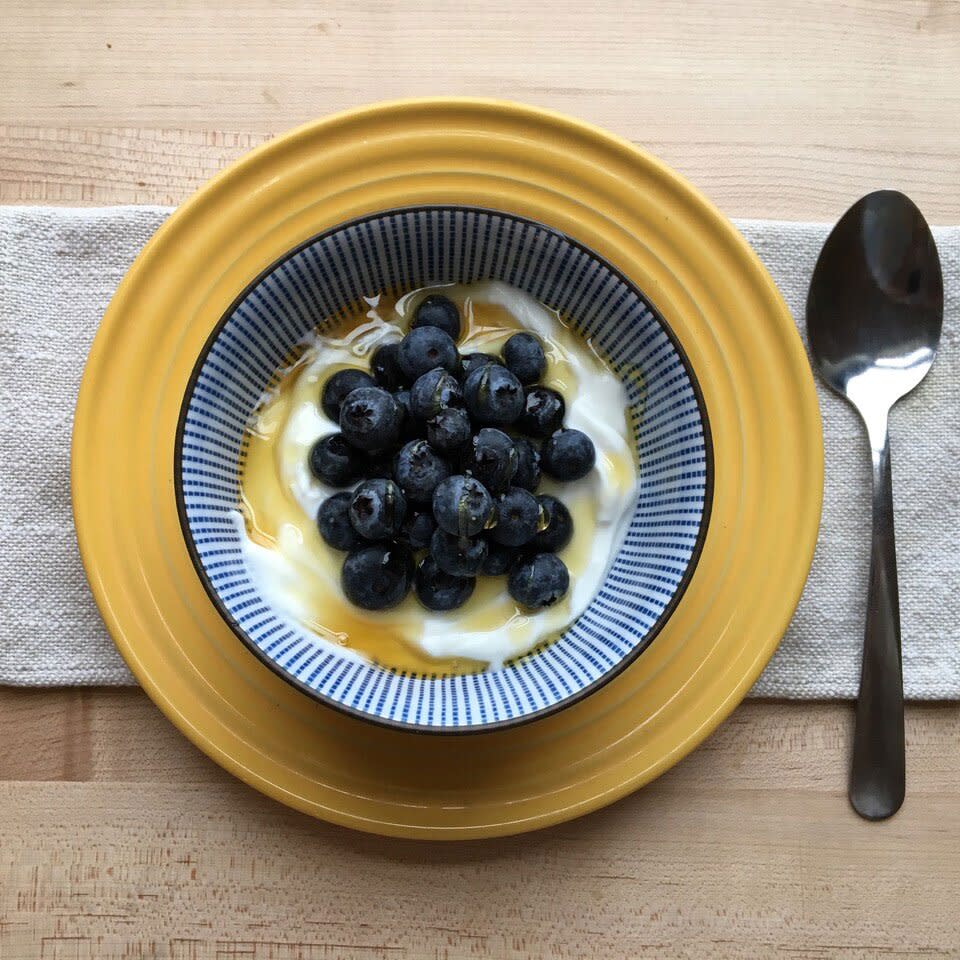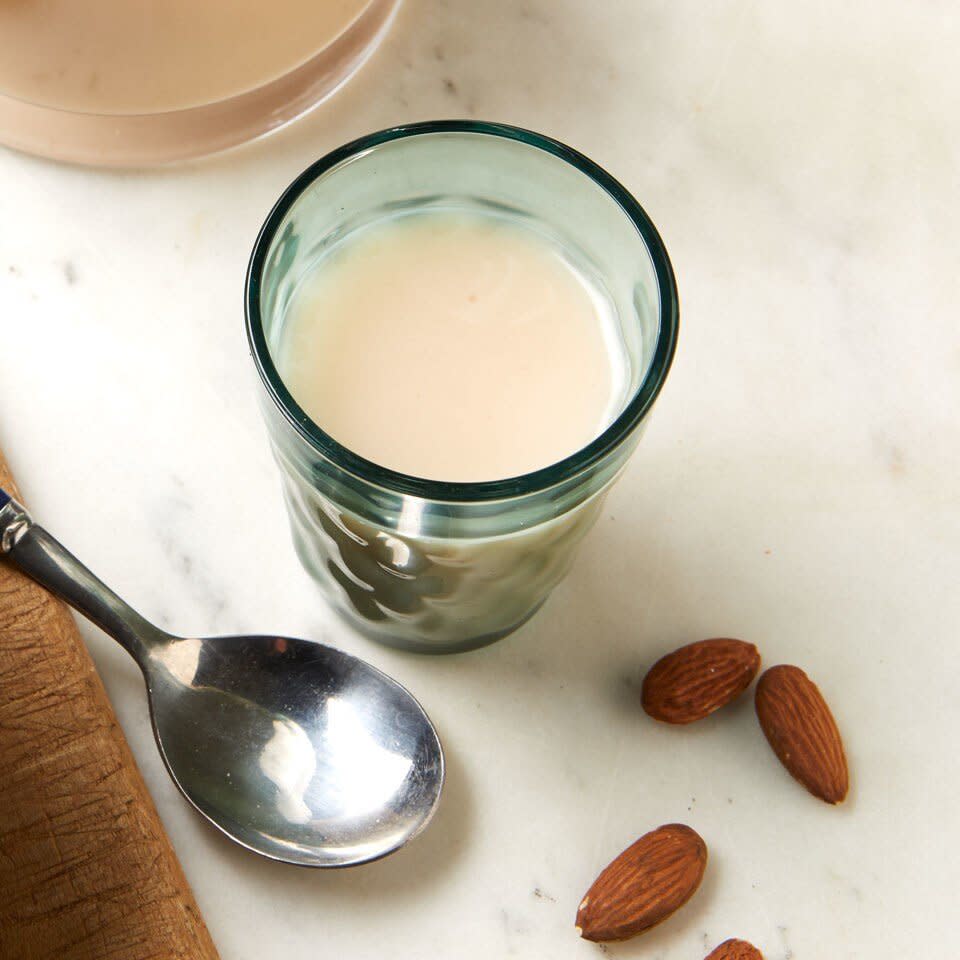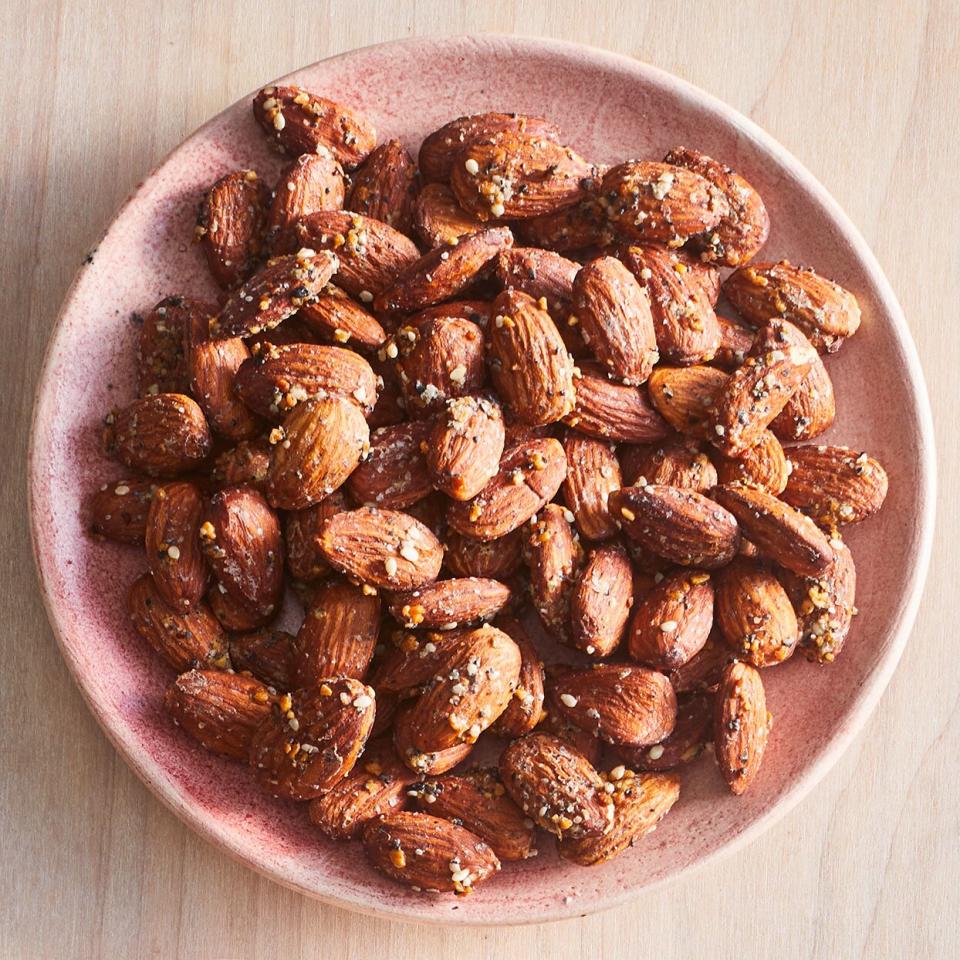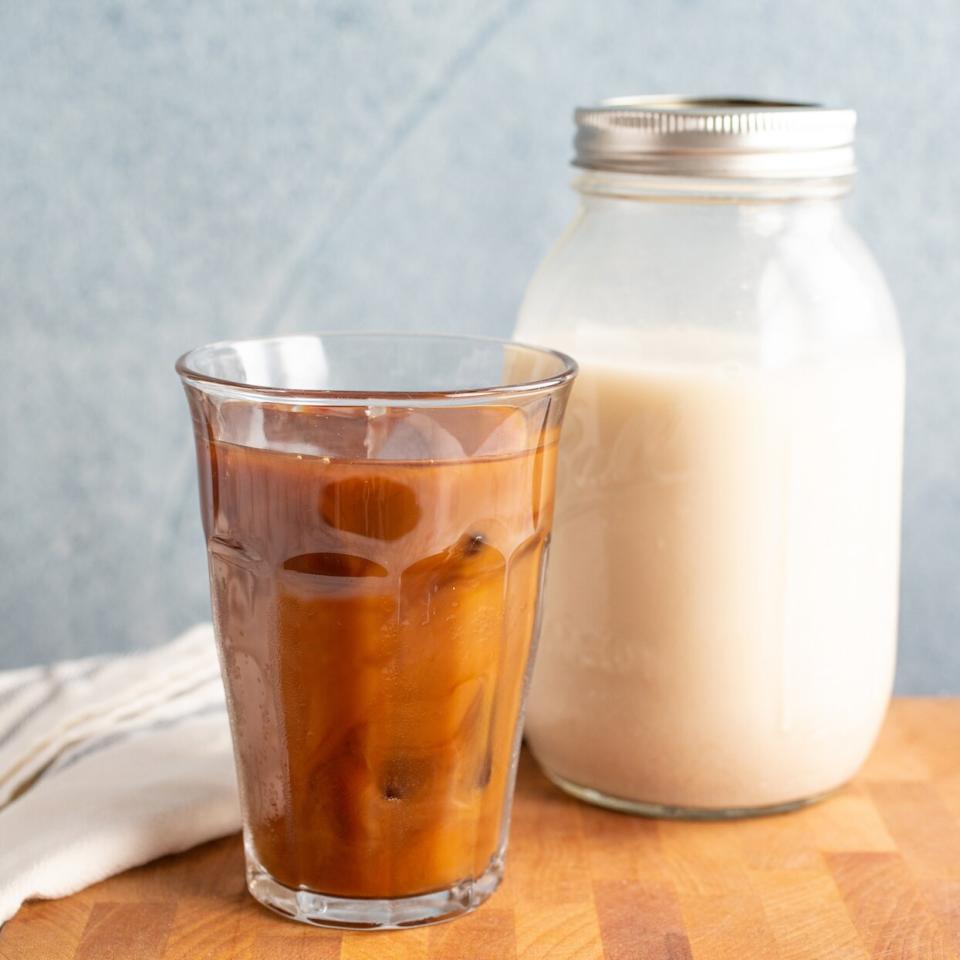10 Foods with More Calcium Than a Glass of Milk

Leigh Beisch
When it comes to calcium, the first food that probably comes to mind is cow's milk. Undoubtedly, cow's milk is an excellent source of calcium, with 1 cup (8 fluid ounces) providing 309 milligrams or 24% of your Daily Value. Calcium is vital for building and maintaining healthy bones and teeth and ensuring the heart, nerves and muscles function properly. But milk is not the only calcium-rich food. Here are 10 foods with more calcium than one glass of cow's milk, and delicious recipes to enjoy them.
Pictured Recipe: Mapo Tofu
1. Firm tofu

1 cup firm tofu = 506 mg calcium (38% DV)
The addition of calcium sulfate, an ingredient used to solidify soymilk to make tofu, increases the amount of calcium in this plant-based food significantly. Note that not all tofu is made with the addition of calcium sulfate. Depending on the type and the country of production, some tofu may also have magnesium chloride, magnesium sulfate or potassium chloride added. Make sure to read the ingredients list and the Nutrition Facts panel to find out whether the tofu you intend to buy contains a considerable amount of calcium.
Tofu is also a low-fat, cholesterol-free, complete-protein, plant-based food, making it an excellent choice for vegetarians and vegans. Firm tofu can be cut into thin slices or cubes and added to stir-fries, soups, stews and sushi.
Get More: Tofu Poke
2. Yogurt

8 ounces nonfat plain yogurt = 488 mg calcium (38% DV)
Like milk, plain yogurt is an excellent calcium source. It actually provides more calcium, for the same serving size, than milk. You can always make plain yogurt flavorful by adding fruits. If you are looking for convenience, though, an 8-ounce serving of yogurt with fruit provides 434 mg calcium or 33% of the Daily Value. For healthier yogurt options, choose those without added sugars and sweeteners.
Get More: Yogurt with Blueberries & Honey
3. Almond milk

1 cup unsweetened almond milk = 449 mg calcium (34% DV)
Almond milk is a product of combining ground almonds and filtered water. This nut-based milk is usually fortified with calcium carbonate, a mineral found in limestone. Almond milk is an option if you want a plant-based dairy alternative and are looking for an alternative to soy-based drinks. However, unlike cow's milk and soymilk, almond milk is not a significant source of protein, with only 1 gram per cup. As with other plant-based dairy alternatives, be sure to check the label to ensure your almond milk is fortified with calcium.
Make Your Own! Homemade Almond Milk
4. Whole almonds

Jennifer Causey
1 cup whole almonds (143 g) = 385 mg calcium (30% DV)
Whole almonds are one the richest sources of calcium. They are also packed with healthy fats, fiber, magnesium and vitamin E. While 1 cup contains more calcium than a cup of cow's milk, this is much more than a typical serving size. One handful of almonds makes a nutritious snack, with a 1-ounce serving providing 13 grams of healthy unsaturated fats. These unsaturated fats may play a role in decreasing total and "bad" LDL cholesterol levels and reducing one's risk for heart disease. Almonds are a great ingredient to add to smoothies, salads and more.
Get More: Everything-Seasoned Almonds
5. Orange juice, calcium-fortified
1 cup fortified orange juice = 347 mg calcium (27% DV)
If you are not a fan of plant-based milks, then drinking calcium-fortified orange juice could be another option for meeting your calcium needs. According to the Dietary Guidelines for Americans, 1 cup of orange juice counts as one serving of fruit, so enjoying juice in moderation is a way to up your calcium intake. The Guidelines also suggest that 100% fruit juice in moderate amounts can be part of a healthy meal pattern, as long as adults keep their consumption to no more than 10 fluid ounces each day.
6. Oat milk

Casey Barber
1 cup oat milk = 350 mg calcium (27% DV)
Looking for a dairy-free and nut-free plant-based alternative to cow's milk? Oat milk may be the answer. Like almond milk, oat milk has calcium carbonate added in the fortification process. While you can make your own oat milk, commercially made versions will offer more nutrients due to fortification. Also, keep in mind that oat milk is a low-protein beverage (3 grams per cup) that does not have comparable amounts to its cow's milk and fortified soy beverage counterparts.
7. Mozzarella cheese

1.5 ounces mozzarella cheese = 333 mg calcium (26% DV)
One 1.5-ounce serving of mozzarella cheese provides slightly more calcium than one glass of cow's milk. Some fresh mozzarellas may also contain healthy bacteria, also known as probiotics, which may help support the digestive and immune systems and fight against inflammation in the body. Mozzarella cheese is super versatile, too. Add it to your favorite pasta, pizzas, risotto or salad, or eat it as is.
Get More: 27 Recipes Using Fresh Mozzarella Cheese
8. Canned sardines
3.75 ounces canned sardines with oil and bones = 351 mg calcium (27% DV)
Sardines are rich in omega-3 fatty acids, which are important for brain health, heart health, eye health and more. They are also one of the few food sources of vitamin D. Sardines are also a source of iron, vitamin B12, vitamin E, magnesium and zinc. You won't even notice that you have eaten the tiny bones because they become completely softened in the canning process, and they offer an added calcium boost. Add sardines to salads, toasts and pasta.
9. Canned salmon

5 ounces canned pink salmon and bones = 312 mg calcium (24% DV)
Like canned sardines, you will also get calcium and vitamin D from canned salmon, partially thanks to the completely softened bones. Salmon is another protein-rich fish with heart-healthy omega-3 fats and B vitamins, potassium and selenium. Choosing canned seafood is a budget-friendly way to add more fish to your diet.
Get More: Easy Salmon Cakes
10. Soymilk
1 cup fortified soymilk = 300 mg calcium (23% DV)
While fortified soymilk does not have more calcium than cow's milk (in fact, they have about the same amount), it is the only plant-based milk alternative that is nutritionally comparable to milk. It often has nutrients added, such as calcium and vitamin D, it is a good source of protein (6 grams per cup) and it's low in saturated fat. You can drink a glass of this plant-based drink to replace cow's milk for similar nutritional benefits to meet your daily requirements.
Get More: Kale & Banana Smoothie

